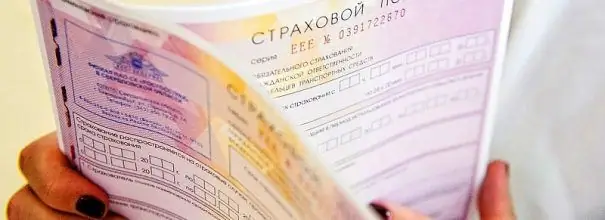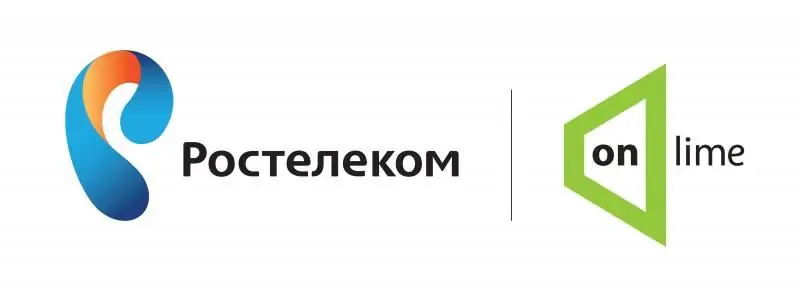
Table of contents:
- Author Bailey Albertson albertson@usefultipsdiy.com.
- Public 2023-12-17 12:53.
- Last modified 2025-01-23 12:41.
"Dopa" when registering OSAGO: how to refuse and not spend too much

When applying for an OSAGO policy, many drivers often face a situation when managers of an insurance company are trying to impose additional paid services, ranging from the help of an emergency commissioner to the evacuation of a car from the scene of an accident. We will help you figure out how to act correctly in such cases so as not to overpay too much.
How insurance agents explain the refusal
Sometimes in practice there are situations when, in the event of a client's unwillingness to pay for additional CMTPL services, the insurer completely refuses to sell such a policy. Moreover, insurance companies can explain their decision as follows:
- lack of insurance forms;
- a ban on the sale of OSAGO without additional services imposed by the higher management;
- a program is installed on the computer that allows you to issue only a full package of services, including additional options.
It should be noted right away that none of the above reasons has a legal basis, therefore, if there is no desire to overpay for OSAGO, the insured should stand firm.
Who is right by law
In accordance with part 2, clause 1.5 of Chapter 1 of Appendix No. 1 to the Regulation of the Central Bank of the Russian Federation No. 431-P dated September 19, 2014, insurance companies have no right to refuse the service of compulsory motor third party liability insurance in cases not provided for in the legislation regulating this sphere.
By law, the reluctance of the car owner to buy additional options is not a significant reason for refusing to sell the CTP policy. Moreover, the imposition of services provides for administrative liability. The violator can be fined in the following amounts (Article 15.34.1 of the Administrative Code of the Russian Federation):
- 20,000 - 50,000 rubles (for officials);
- 100,000 - 300,000 rubles (for organizations).
Thus, in this matter, the legislation is completely on the side of the policyholders. Companies specializing in the sale of insurance do not have the right to refuse to issue OSAGO without additional services. This action is illegal.
What to do if extra services are imposed
Once in a similar situation, it is important to know how to act correctly and what measures to take. In this case, the following options are possible:
- You can refuse the services of a particular insurer and go to another insurance company - as a rule, this model of behavior is used by citizens who do not want to waste time arguing with the insurer and defending their position.
- Another option is to firmly protect your rights - in this case, you can try to explain to the specialist of the insurance company that his actions are illegal. In this case, it is imperative to refer to specific legislative norms.
If no arguments have helped, the car owner, whose rights have been violated, can write a complaint to higher authorities. This could be the RSA (Russian Union of Auto Insurers) or the Central Bank of the Russian Federation.
Another alternative option is to issue OSAGO on the Internet. This method allows not only to significantly save time, but also to choose exactly the service that the policyholder really needs, without overpaying for additional options. Today, each insurance company has its own website, where anyone can apply for compulsory insurance online.
How to get back the money already spent
According to the established procedure, car owners have the right to withdraw from the CMTPL agreement and return their money back. In this case, we are talking about the so-called "cooling period", which means the period of time during which the policyholder has the right to cancel his decision (regarding the purchase of the policy) and return the paid insurance premium or part of it.
This possibility is provided for in clause 1 of the Directive of the Central Bank of the Russian Federation dated November 20, 2015 No. 3854-U. So, in accordance with this rule, the insured has the right to cancel the OSAGO contract within 14 days from the date of its conclusion (in the absence of insured events). In this case, the insurer is obliged to return the money paid to him in the following amount:
- in full (if the refusal was received before the start of the insurance policy);
- part of the insurance premium (if the car owner canceled the contract after the start of its validity. In this case, the insurance company has the right to deduct from the total cost of the policy an amount proportional to the period during which the insurance was valid).
In order to return the money spent on OSAGO, the car owner needs to write a corresponding statement and take it to the organization where the insurance was purchased. Such a document is drawn up in any form or according to a template approved by a specific insurer.
The following information should be included in the content of the application for refusal from OSAGO:
- "Header" of the document - here the details of the insurance company and information about the applicant (full name, address, phone number) are indicated;
- the name of the paper - as a rule, it duplicates the main essence of the letter and may have the following wording: "Statement of refusal from the concluded insurance contract";
- the main part - here you need to consistently describe when and under what circumstances the contract was concluded, inform about the imposed services and, referring to the provisions of the above-mentioned Directive of the Central Bank of the Russian Federation, demand a refund for insurance.
- conclusion - at the end of the document, you should indicate the list of attachments (OSAGO agreement, receipt of payment of the insurance premium), as well as sign and date.
Thus, according to the law, citizens have every right not to issue additional services imposed by insurance companies when registering OSAGO. At the same time, the latter have no right to refuse to sell the policy, since such an action is contrary to the law. For this offense, the insurer may be brought to administrative responsibility.
Recommended:
What Is Cashback And How To Use It, What Types Of Services Exist

Definition of cashback. Description, functions, use, options. Cashback from different banks, pros and cons
Internet Provider GorKom (Seven Sky): Services, Tariffs, Connection, Contacts And Reviews

What services does Seven Sky provide: tariffs, advantages and disadvantages. How to connect the Internet from Seven Sky, contact information. Reviews
Internet Provider Online: Services, Contacts, Connection And Customer Reviews

What tariff plans for Internet and TV does OnLime offer? How to connect these services: official website, phone. What equipment can be bought from the provider
Internet Provider NetByNet: Services, Connection And Customer Reviews

Internet provider NetByNet: services and tariffs, regions of possible connection, advantages and disadvantages. How to connect your home Internet: instructions. Reviews
Moscow Internet Providers At Home: How To Find And Activate Services

How to find an Internet provider at your home address in Moscow. How to connect and configure its services. List of sites
